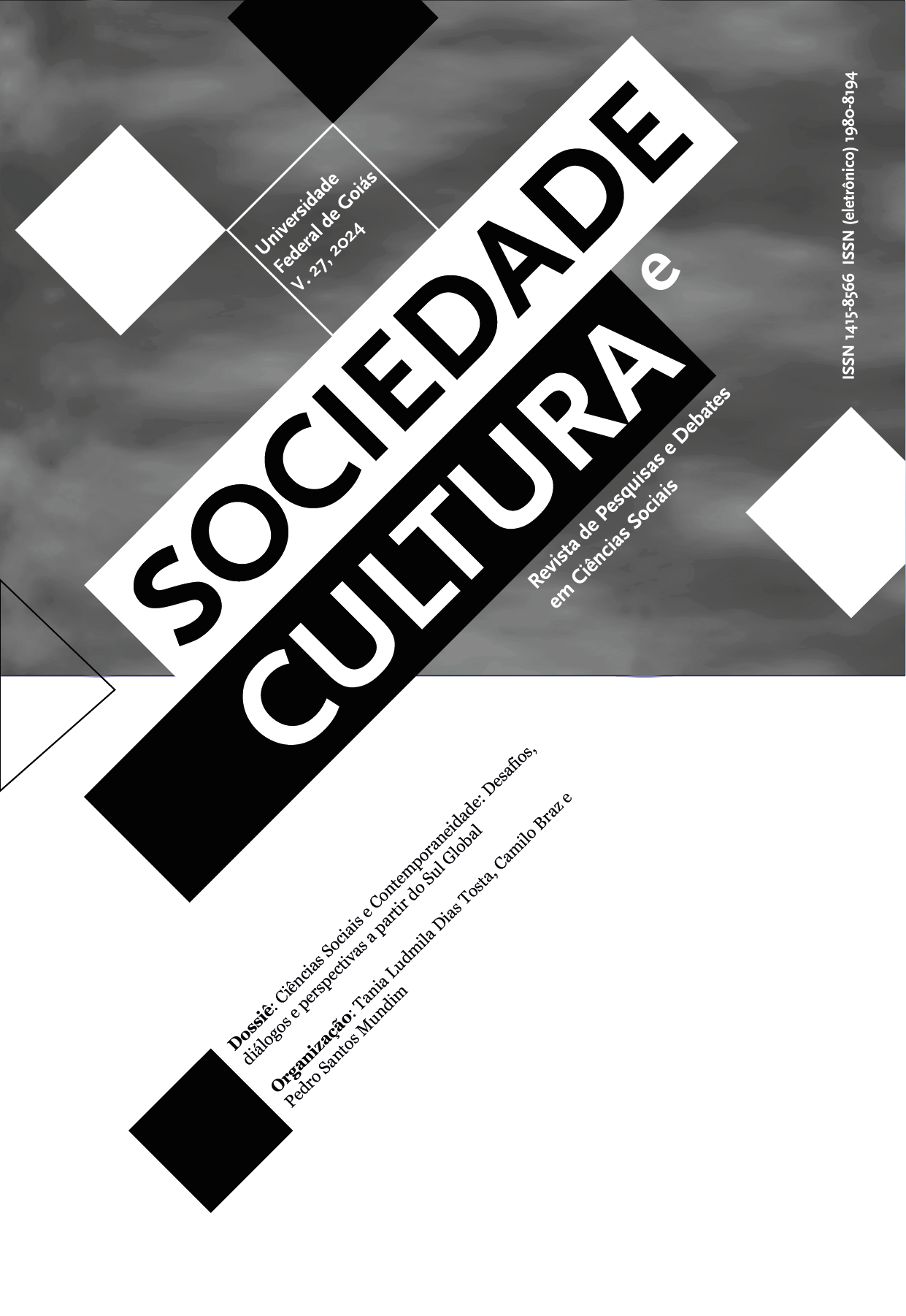“Opposites are distracted, willing ones attract”: love and politics in the use of digital media among self-identified leftists
DOI:
https://doi.org/10.5216/sec.v27.80157Abstract
The article examines the impact of digital media on the search for romantic relationships among self-identified left-wing individuals in Brazil. The research was guided by the following question: How is
political positioning evaluated as a criterion for love? The objective was to ascertain the manner in which the Brazilian political context was manifested in the realm of emotional life. The methodology entailed an
analysis of interactions within a Facebook group whose stated purpose was to serve as a conduit for the dissemination of profiles, facilitate expansion of affective possibilities, and foster connections between subjects. I demonstrate that, contrary to the assertion that the network
was open to social differences, there was a discernible profile indicative of aspects pertaining to gender, sexuality, race/ethnicity, generation, social class, and region among the subjects who socialized on this network. Additionally, I examine the gender relations evident in the heterosexual dynamics of the research field, which indicate a rejection of masculinities
perceived to be “left-macho”.
Downloads
Downloads
Published
How to Cite
Issue
Section
License
Copyright (c) 2025 Sociedade e Cultura

This work is licensed under a Creative Commons Attribution 4.0 International License.
Authors who publish in this journal agree to the following terms:
- Authors retain the copyright and grant the journal the right of first publication, the work being simultaneously licensed under the Creative Commons Attribution License, which allows the sharing of the work with acknowledgment of authorship and of the initial publication in this journal;
- Authors are authorized to enter into additional contracts separately, for non-exclusive distribution of the version of the work published in this journal (eg, publishing in an institutional repository or as a book chapter), with acknowledgment of authorship and of the initial publication in this journal;
- Authors are allowed and encouraged to post and distribute their work online (eg, in institutional repositories or on their personal page) at any point before or during the editorial process, as this can bring productive change as well as increases the impact and the citation of the published work (see O Efeito do Acesso Livre).



